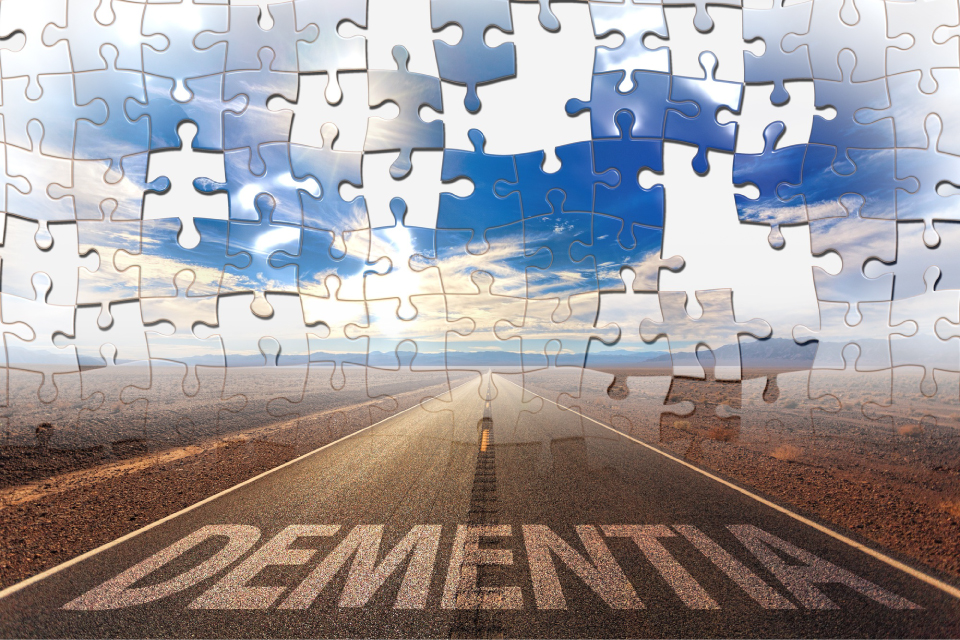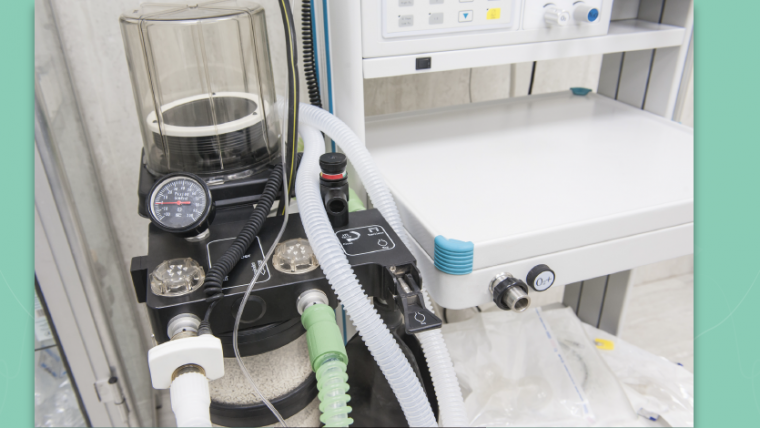There are approximately 47 million people worldwide living with dementia.
A syndrome that affects the elderly, one in three seniors dies with some form of dementia. Despite that figure, there are treatments for dementia that can ease the symptoms and make like more comfortable.
When a loved one has dementia, you may feel overwhelmed by dementia treatment options. We break down the most common medications, therapies, and alternative treatments for dementia. Keep reading to find out how to best help your loved one.
What is Dementia?
Although Alzheimer’s patient’s make up 60% to 80% of dementia cases, dementia is the syndrome and not the disease.
The term dementia refers to a group of symptoms related to reduced cognitive ability. The loss of memory and other thinking affects a person’s ability to function at a level where they can perform everyday tasks.
The way dementia shows itself in people varies by individual. It’s defined by the significant impairment of two of the following five core mental functions:
- Communication and language
- Reasoning and judgment
- Memory
- Ability to focus and pay attention
- Visual perception
It’s important to note that dementia is progressive. The symptoms of dementia worsen over time. This is why early detection and treatment is so critical to the quality of life of the patient.
Diagnosing Dementia
A person must be significantly impaired in two of the above mental functions to be diagnosed with dementia. Impairment means that they’re unable to perform day to day tasks and responsibilities.
If you suspect that a loved one has dementia, schedule a visit with the doctor as soon as possible. The doctor will go through the patient’s medical history and discuss the symptoms. They’ll also perform a physical exam as well as other tests and ask some questions.
You can expect the doctor to perform the following tests:
Cognitive and Neuropsychological Tests
These involve measuring thinking and cognitive function. i.e. memory, reasoning and judgment, language skills, attention, and orientation.
Brain Scans
These can check for possibles strokes, tumors, bleeding, or other underlying causes for dementia (i.e. CT or MRI). Or, they may be designed to check for Alzheimer’s (i.e. PET scan).
A Psychiatric Evaluation
This investigates whether the symptoms of dementia are related to a mental health condition such as depression or anxiety.
Neurological Evaluation
This looks for issues with language, visual perception, and problem-solving. They may also check balance, sense, movement, reflexes, and memory.
Laboratory Tests
These look for underlying physical conditions causing dementia. I.E. blood tests for vitamin deficiencies, spinal fluid tests for infection or inflammation.
Consider preparing for your appointment and taking notes during. Your preparation should include writing down:
- Symptoms and situational examples
- Personal information including historical and recent data on stress levels, major life changes, medical conditions etc.
- A list of all medications and supplements along with the dosage
You should be consulting with a physician who specializes in senior patients. This includes geriatric internists, geriatric psychiatrist or neurologists. These medical professionals will be current on diagnoses and treatment options.
Treatments for Dementia
The dementia treatment options aren’t cures for the syndrome. Instead, they help make life more comfortable for both the patient and their caregiver(s).
Treatments for dementia depend very much on the individual and their particular symptoms. Below is a comprehensive list of all the available treatment options.
Underlying Causes
Dementia can be caused by underlying health issues. Dementia may relate to underlying thyroid disease, heart problems, and even nutritional deficiencies. Sometimes treating the underlying health issue will lessen or reverse the symptoms.
Vitamin deficiencies and metabolic disorders are treated with proper supplements. This treatment can reverse dementia symptoms in some patients.
Treating high blood pressure can prevent vascular dementia that’s caused by strokes. Hypothyroid medications can also halt and reverse dementia symptoms.
Mental health conditions can make dementia worse. Treating depression with a combination of antidepressants and psychotherapy can help manage symptoms.
Dementia can be a side effect of medications or interaction between many medications. In these cases, taking the patient of the medications can reverse dementia.
Medications for Dementia
In most dementia cases, the symptoms are irreversible. But the medications used to treat dementia make life easier on the patient and their caregiver(s).
Medication can help create a safe environment for everyone to function and manage behavioral symptoms. It can also prolong the effects of the syndrome. But it’s important to remember that medications don’t cure dementia. They delay the progression of symptoms.
There are five prescription drugs available to help treat Alzheimer’s:
- Exelon
- Razadyne (Reminyl)
- Cognex
- Aricept
- Namenda
The first four of these drugs are cholinesterase inhibitors. They prevent acetylcholine from breaking down. This chemical messenger controls memory and judgment.
Exelon, Razadyne, Cognex, and Aricept are for mild to moderate dementia patients. Namenda is a bit different from the other four medications. It’s better suited for treating moderate to severe cases of dementia.
Namenda works to regulate glutamate. It can be used in combination with the cholinesterase inhibitors and also prevents the death of brain cells that are mostly associated with Alzheimer’s disease.
Both the cholinesterase inhibitors and Namenda have minimal side effects. The side effects of cholinesterase inhibitors include nausea, vomiting, and diarrhea. Memantine (aka Namenda) may cause dizziness.
Other Potential Medications
Because the symptoms of dementia go beyond memory loss, your doctor may recommend other medications to ease additional symptoms. These additional medications will depend on the individual and their particular needs.
For symptoms that involve issues with muscular functioning, your doctor may prescribe an anti-Parkinson’s medication. Keep in mind that while these medications may stop involuntary muscular movements, they’re very strong and can cause undesirable side effects.
Behavioral problems can also be treated with medications. Antipsychotic drugs can be prescribed for psychosis or behavioral agitation. These drugs can also reduce the number and severity of hallucinations as well as delusions.
Medications to treat depression may be recommended. If your doctor is treating your loved one for depression, they’ll likely recommend a regiment of both medication and psychotherapy. Together, this course of treatment has proven effective in improving the quality of life for dementia patients.
For individuals who have trouble sleeping, doctors can also provide sleep medications that treat sleep disorders. These can also be used to treat anxiety.
Alternative Therapies
Natural remedies such as vitamin E, omega-3, and ginkgo may offer some relief from the symptoms of dementia.
Taking large doses of vitamin E is unsafe, especially for those with heart disease. In smaller doses, there is some evidence that vitamin E can help slow the onset of Alzheimer’s disease. Omega-3’s are found in fatty fish and they may help reduce cognitive decline, specifically in cases of mild to moderate Alzheimer’s disease.
More research is needed to determine exactly how these alternative remedies affect dementia symptoms. Although generally considered safe, natural treatments can interact with other medications. It’s important to discuss any supplements or vitamins with a doctor.
Alternative therapies help the patient and caregiver adjust to life with dementia. Occupational therapy, for example, assists caregivers in making a home more safe for a dementia patient. They can also teach caregiver coping skills that include managing behaviors and preparing for the progression of the syndrome.
Other therapies include speech therapy, massage therapy, exercise, aromatherapy, and music therapy. These therapies stimulate the brain and body to protect it against brain cell death. They can prevent brain shrinkage and prolong the cognitive function of a dementia patient.
Tips for Dealing with Dementia
As long as a loved one with dementia is living at home, the environment needs to be adapted to their syndrome. To create a safe and supportive environment, follow these guidelines.
Communication
As your loved one loses the ability to communicate or follow a conversation, you’ll have to adjust the way you speak to them. Speak slowly using hand gestures and while maintaining eye contact.
Use simple language that’s easy to understand. When explaining instructions or information, only present 1 idea at a time and make sure you’re simple to follow. In mild and moderate cases of dementia, you can use reminders and notes as reminders that aid reduced memory.
Environment
Some changes to the home environment can make life more comfortable and safe for a dementia patient.
Start with rearranging the physical environment to make the home both safer and more relaxed. Making sure that household items and clutter are free of regular walking paths and stored properly can help with focus and function. Reducing the amount of noise in the home can also assist in that capacity.
You should consider hiding items that are unsafe. These include knives, car, keys, or items that can break (such as mirrors and glass).
Creating a ritualized routine can aid with behavioral problems, especially at night. Having a ritual for nighttime involves developing a calming routine that’s free of distraction from TV or other members of the family.
Having nightlights in bedrooms, hallways, and bathrooms are also a good idea. This safety precaution costs very little and can save your loved one from experiencing disorientation when they wake up at night.
Activity
Keeping your loved one active is an essential part of addressing their symptoms. It keeps the brain active and prevents cell death to reduce the rate of symptoms worsening. Activities involve anything from exercise to encouraging participation in things they like to do.
Consider painting, cooking, gardening, singing, and dancing. You can do these simple activities at home or look for senior centers that offer support for dementia patients. Participating in activities they love to do not only improves cognitive function, but it also has an effect on mood and behavior.
Coping
When a loved one is diagnosed with dementia, the responsibility can be overwhelming. If you’ve never dealt with dementia previously, it’s easy to find yourself at a loss.
There are many things you can do to help you cope and ensure you’re supporting your loved one to the best of your ability:
- Journal your experiences
- Express yourself through painting, writing, singing, etc.
- Look for support either through online support groups or through a community program
- Seek advice from your spiritual counselor
- Look for counseling – either family or individual
- Find resources to help you learn more about dementia, what to expect, how to prepare, and other people’s experiences
- Learn as much as you can about memory loss, dementia and Alzheimer’s disease.
- Ask for help when you need it
Ensure that you remember to take care of yourself. It’s imperative that you maintain your own health, nutrition, and wellbeing in order to take care of your loved one properly.
Seek Help
Your loved one’s dementia will eventually progress past the point of your own abilities. At that point, you’ll have to decide to seek outside help. This can be in the form of a full-time caregiver or in an assisted living facility.
You may choose home care for your loved one. Those options include a nurse to care for your loved one that visits regularly or a live-in caregiver who is available 24/7. They can take care of the patient’s physical needs, provide company, and distribute any medications.
An assisted living facility is another option when you can no longer support your loved one at home. There are long-term care facilities as well as entire communities that cater to these needs.
Although choosing long-term care for your loved one is a difficult decision, irreversible dementia can be emotionally, physically, and financially draining on a family. Dementia inevitably reaches a point where this level of care is necessary.
Do You Need Help Caring for a Loved One?
Dementia is a progressive disease that primarily affects elderly people. It causes memory loss and increasingly reduced cognitive functions. Treatments for dementia range from medication to alternative therapies such as music therapy.
Taking care of a loved one with dementia involves developing new coping skills. It also involves creating a supportive and safe environment and learning to manage the behavioral issues associated with dementia. It also means eventually making the decision to seek more professional help.
When that time comes, be sure to check out our resources section and articles to find out how we can make life more comfortable for both the dementia patient and you.






1 Comment
Mozelle
Wow, wonderful blog layout! How lengthy have you been blogging for?
you make running a blog glance easy. The full glance of your site is magnificent,
as well as the content material! You can see similar here najlepszy
sklep